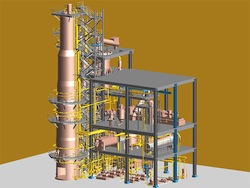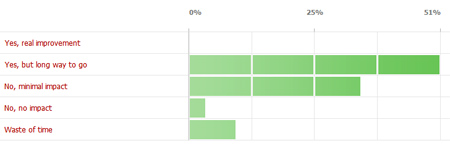This week, the National Research Council (NRC) released a new report, “Sustainable Development of Algal Biofuels in the United States.” The report was a result of a request from the Department of Energy, Office of Energy Efficiency and Renewable Energy’s (DOE-EERE) Biomass Program.
The purpose of this study was to identify and anticipate potential sustainability concerns associated with a selected number of pathways for large-scale deployment of algal biofuels; discuss potential strategies for mitigating those concerns; and suggest indicators and metrics that could be used and data to be collected for assessing sustainability across the biofuel supply chain to  monitor progress as the industry develops. In addition, NRC was asked to identify indicators that are most critical to address or have the greatest potential for improvement through DOE intervention as well as to suggest preferred cost and benefit analyses that could best aid in the decision-making process.
monitor progress as the industry develops. In addition, NRC was asked to identify indicators that are most critical to address or have the greatest potential for improvement through DOE intervention as well as to suggest preferred cost and benefit analyses that could best aid in the decision-making process.
Ultimately, the report found that scaling up the production of biofuels made from algae to meet at least 5 percent, or approximately 39 billion liters, of U.S. transportation fuel needs would place unsustainable demands on energy, water, and nutrients. However, these concerns are not a definitive barrier for future production, and innovations that require research and development could help realize algal biofuels’ full potential.
The Biotechnology Industry Organization (BIO) today welcomed the report and noted that mitigation strategies are currently being developed to reduce energy, water and nutrients needed to convert algae to biofuels.
Brent Erickson, executive vice president of BIO’s Industrial & Environmental Section, said, “While the National Research Council catalogued and prioritized every potential environmental and resource challenge for the development of algae biofuels, their report correctly concludes that the industry has developed or is developing sustainable strategies to overcome these challenges. Biotechnology will continue to play a crucial role in the improvement of the productivity and economic viability of algae biofuels and other advanced biofuels that are cleaner, safer and healthier than petroleum-based fuels.”
Erickson added, “The potential benefits of developing algae biofuels – which include reducing reliance on foreign oil and contributing to a healthier economy by deploying U.S. technology – warrant continued research, development and commercial development of algae biofuels.”










